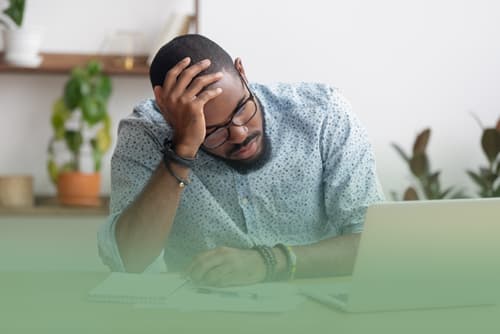Stress gets a bad reputation, even though it is a natural and necessary phenomenon. Without it, humans would not have survived. It’s only when stress becomes too overwhelming that it turns problematic. During the COVID-19 pandemic, many people are living with the most stress they’ve ever experienced.
“When normal stress builds to a certain level and is no longer serving a productive purpose in our lives, we typically see suppression of the immune system or upset digestion. This is the body giving us little cues that things are no longer productive and we need to step in and take care of it,” explains Deborah Blazzard, psychiatric mental health nurse practitioner at Palouse Psychiatry & Behavioral Health.
If left unaddressed, chronic stress can cause both emotional and physical damage, such as an increased risk of heart attack or stroke. It also exacerbates the aging process. “Ultimately, too much stress could almost rewire your brain, leaving you more vulnerable to depression and anxiety,” adds Deborah.
Unhealthy vs. Healthy Coping Mechanisms for Stress
It’s easy to turn to unhealthy coping mechanisms when it all becomes “too much.” Consuming comfort food or alcohol (or both), staying up later than normal, nicotine use, and even over-spending are common ways people try to mitigate uncomfortable feelings. Individuals who easily or frequently reach their boiling point routinely take out their frustrations on friends or family members.
A better approach is to accept that nothing is normal right now and to be realistic in what we expect in ourselves and others. What can you get done today—and what can’t you? It’s okay to save some of your “list” until a later day.
Deborah also recommends moving your body to ease some of the pressure, which is a proven stress-relief tactic.
“I think it's important to get out and relax and enjoy life outside when you can. I live in a very beautiful place, and there will be a lot of days where I'll just take a break and go for a walk in nature. That seems to really bring the stress level down. It may mean getting up an hour earlier so you can exercise or just have some time for yourself before the stressful day begins.”
When Should You Reach Out for Help With Stress?
Of course, in some cases taking a walk or utilizing a practice like guided meditation isn’t enough to combat the intensity of angst one is feeling. If you or someone you know has reached a point where daily activities are severely altered, or you can’t shake feelings of apprehensiveness, anxiety, or sadness, the next step should be to consult with a primary care provider.
If it is determined a specialist like Deborah Blazzard is warranted, at least you know you’re getting the help you need. “That might be the course of action required if the person is at a point where they've tried everything and they just can't seem to get over that hump,” she notes.
At the end of the day, Deborah encourages people to know they are a part of something no one living today has ever been through. That collective understanding may bring some ease.
“We're all in this together; we're helping each other out. The biggest thing is that we're not alone. We can reach out to a friend or a family member, and you can also be that person to help other people when you get on the right track.”

